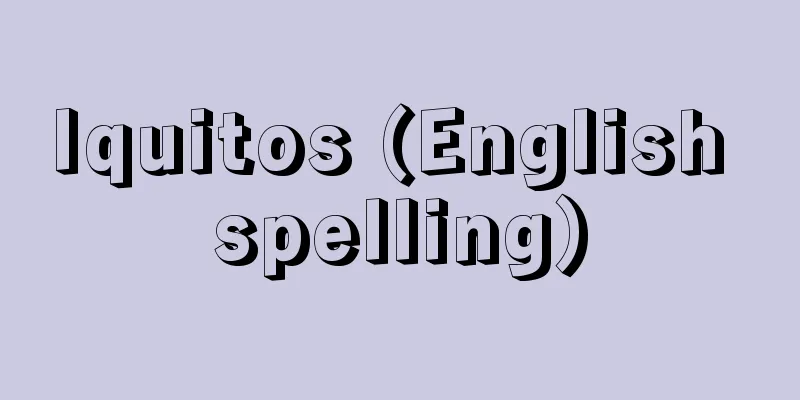Acute gastritis

|
What kind of disease is it? ●Main symptoms and courseAcute gastritis is a disease in which the stomach mucosa suddenly becomes inflamed. The stomach mucosa has a defensive function to protect the stomach wall from gastric acid and digestive enzymes, but if the function of this gastric mucosa is weakened for some reason or the aggressive power of the stomach acid becomes stronger, acute gastritis will develop. Symptoms of acute gastritis occur suddenly, such as pain in the pit of the stomach, abdominal distension, nausea, and vomiting. Although the symptoms are sudden, most subside within a short period of time. However, in severe cases, vomiting blood or bloody stool may occur due to bleeding from the stomach mucosa. An endoscopic examination reveals swelling, redness, and erosion of the gastric mucosa, and in severe cases, ulcers and bleeding. ● How the symptoms and causes of the disease occur Gastric acid is necessary to aid digestion, but if too much is secreted, it can damage and injure the stomach's mucous membrane itself. The stomach mucous membrane also has its own defense mechanism to protect the stomach from gastric acid. Normally, this balance is maintained and the stomach does not get digested, but various factors can disrupt this balance and cause acute gastritis. Medications and excessive stress are said to be the main causes. For example, extreme physical and mental stress can occur in surgery, head injuries, burns, working all night, and day-night shift work. The most common causative medications are non-steroidal anti-inflammatory drugs, but other causes include low-dose aspirin (Bufferin), anticancer drugs, oral hypoglycemic drugs, and antibiotics. Other causes include food (such as alcohol and irritants), corrosive chemicals (acid and alkaline preparations, pesticides), parasites (Anisakis), and bacterial infections (Helicobacter pylori). ●Characteristics of the disease Most acute gastritis, except for severe cases, responds well to treatment, and by removing the cause of its onset, it will subside quickly and will not become chronic. EBM checks on common treatments and care [Treatment and care] Remove the cause of the disease [Rating] ☆☆ [Evaluation points] Acute gastritis can occur for a variety of reasons, so in order to prevent and treat it, it is important to eliminate the causes, such as stress, drugs, alcohol, and infections. This is supported by the opinions and experiences of experts. [Treatment and care] Stop binge eating and drinking [Rating] ☆☆ [Evaluation Points] There are no clinical research reports that show that overeating is the cause of acute gastritis, but eating raw mackerel or squid can lead to infection with a parasite called Anisakis, which can cause acute gastritis. Drinking too much alcohol can also damage the stomach mucosa and cause inflammation. [Treatment and care] Avoid drinking alcohol and smoking when symptoms are present [Rating] ☆☆ [Evaluation points] There are no clinical studies on whether smoking cessation is effective in treating acute gastritis. However, because smoking is a risk factor for gastric ulcers, it is advisable to quit smoking if you have a gastric ulcer, regardless of whether you have symptoms or not. Because alcohol can cause gastritis, you should abstain from drinking if you have symptoms. These are supported by expert opinion and experience. [Treatment and care] Drug treatment [Evaluation] ☆☆ [Evaluation points] There are no reliable clinical studies on whether gastric acid secretion inhibitors, which suppress stomach acid, or gastric mucosal defense factor enhancers, which protect the mucosa, are effective as treatments for acute gastritis; however, they are supported by expert opinion and experience and are widely used. [Treatment and care] Hematemesis is treated with an endoscope [Evaluation] ☆☆ [Evaluation points] In most cases of acute gastritis, the lesions are limited to the shallow part of the gastric mucosa, and bleeding occurs only in the surface layer of the mucosa. In cases of superficial bleeding, it is not clear whether endoscopic examination is effective for treatment, but in severe cases accompanied by hematemesis or bloody stool, endoscopic hemostatic treatment is performed. [Treatment and care] Fasting if there is gastrointestinal bleeding [Rating] ☆☆ [Evaluation points] Clinical studies have shown that there is no difference in the progress of the disease between starting to eat immediately after gastrointestinal bleeding has stopped and continuing to fast. However, symptoms such as nausea and abdominal pain often cause loss of appetite, so fasting is usually the norm. (1) [Treatment and care] If infected with Helicobacter pylori, eradication therapy is performed. [Rating] ☆☆ [Evaluation Points] Acute gastritis usually improves naturally by removing the cause, but highly reliable clinical studies have demonstrated that in cases where Helicobacter pylori has infected the gastric mucosa, eradication therapy leads to a faster improvement. However, eradication therapy for acute gastritis that does not form ulcers is not covered by health insurance. (2) [Treatment and care] Ultrasound examination is performed to distinguish from other diseases [Evaluation] ☆☆ [Evaluation Points] If symptoms and examination findings suggest acute pancreatitis, acute cholecystitis, common bile duct stones, or other diseases, an ultrasound examination is performed. Ultrasound examination is not required for the diagnosis of acute gastritis itself. There are no clinical studies, but these are supported by expert opinion and experience. Checking commonly used drugs with EBM If you have gastrointestinal bleeding and cannot eat [Medicinal use] H2 receptor antagonist (injection) [Drug name] Gaster (Famotidine) [Rating] ☆☆ [Medicinal use] Proton pump inhibitor (injection) [Drug name] Omepral/Omeprazone (Omeprazole) [Rating] ☆☆ [Drug name] Takepron (lansoprazole) [Rating] ☆☆ [Evaluation points] Although both drugs are supported by expert opinion and experience, they are not covered by health insurance unless you have a stomach ulcer or gastroesophageal reflux disease. If you are able to take medication without gastrointestinal bleeding [Drug use] H2 receptor antagonist [Drug name] Gaster (Famotidine) [Rating] ☆☆ [Drug name] Acinon (nizatidine) [Rating] ☆☆ [Medicinal use] Proton pump inhibitor [Drug name] Omepral/Omeprazone (Omeprazole) [Rating] ☆☆ [Drug name] Takepron (lansoprazole) [Rating] ☆☆ [Drug name] Pariet (rabeprazole sodium) [Rating] ☆☆ [Drug name] Nexium (esomeprazole magnesium hydrate) [Rating] ☆☆ [Medicinal use] Mucosal protective factor enhancer [Drug name] Mucosta (rebamipide) [Rating] ☆☆ [Drug name] Selbex (Teprenone) [Rating] ☆☆ [Drug name] Ulcermin (sucralfate hydrate) [Rating] ☆☆ [Evaluation points] Acute gastritis usually improves when the cause is removed. It is unclear whether these drugs will speed up healing if there is no ulcer. Since excessive secretion of gastric acid is one of the causes of acute gastritis, drugs that suppress gastric acid and protect the gastric mucosa are used empirically. If you have severe nausea or vomiting [Drug name] Gasmotin (Mosapride citrate hydrate) [Rating] ☆☆ [Drug name] Nauzene (Domperidone) [Rating] ☆☆ [Evaluation points] Either medication may be used based on expert opinion and experience when symptoms are severe. If the pain is severe [Drug name] Buscopan/Butylpan (Butylscopolamine bromide) [Rating] ☆☆ [Drug name] Strocaine (Oxethazaine) [Rating] ☆☆ [Evaluation points] Although there are no clinical studies showing the effectiveness of either drug in severe pain, they are supported by expert opinion and experience. In the case of Helicobacter pylori infection [Medicinal use] Eradication therapy is performed with the following three drugs [Drug name] Takepron (lansoprazole) (or the above-mentioned proton pump inhibitor) + Sawacillin/Pasetocin (amoxicillin hydrate) + Claricid/Claris (clarithromycin) (3)(4) [Rating] ☆☆ [Evaluation Points] Clinical studies have shown that treatment with proton pump inhibitors, amoxicillin hydrate, and clarithromycin is effective for eradicating Helicobacter pylori, but these are not covered by health insurance for acute gastritis. Eradication may be performed for acute gastritis, but please consult with your doctor regarding the appropriateness of treatment. Overall, the most reliable treatment method currently available is to remove the causes of inflammation of the gastric mucosa. Gastritis is a disease that develops when the balance between gastric acid secretion and the defense function of the stomach wall is disrupted. There are various causes of this imbalance. Therefore, if the causes can be identified, measures can be taken to remove them. The main causes include extreme physical and mental stress such as surgery, head trauma, burns, working all night or working day-night shifts, or medications such as nonsteroidal anti-inflammatory drugs, anticancer drugs, oral hypoglycemic agents, and antibiotics. Other possible causes include food (such as alcohol and irritants), corrosive chemicals (acid and alkaline preparations, pesticides), parasites (Anisakis), and bacterial (Helicobacter pylori) infections. Medications are used according to the symptoms, and in severe inflammation, temporary fasting is recommended. For acute gastritis, gastric acid secretion inhibitors such as H2 receptor antagonists and gastric mucosa protective drugs are used, and if nausea is severe, antiemetics are used. In addition to taking medication according to the symptoms, it is also important to stop binge eating and drinking, and to abstain from alcohol and smoking. When the inflammation is severe and the stomach mucosa becomes inflamed and eroded, accompanied by bleeding, the patient is temporarily fasted. In cases of severe bleeding such as vomiting blood or bloody stool, hemostatic techniques are performed using an endoscope to stop the bleeding. In the case of acute gastritis, Helicobacter pylori eradication is not covered by health insurance. It is known that acute gastritis can also be caused by infection with Helicobacter pylori, other bacteria, viruses, and parasites such as anisakiasis. Acute gastritis caused by the Anisakis parasite causes sudden abdominal pain, but the symptoms quickly improve if the worms are removed using an endoscope. In most cases of acute gastritis caused by Helicobacter pylori infection, eradication treatment is not usually performed because the bacteria is naturally excreted within six months. (1)Laine L, Cohen H, Brodhead J, et al. Prospective evaluation of immediate versus delayed refeeding and prognostic value of endoscopy in patients with upper gastrointestinal hemorrhage. Gastroenterology. 1992;102:314-316. Source: "EBM: A book that explains correct treatment" Information about the book "EBM: A book that explains correct treatment" |
|
どんな病気でしょうか? ●おもな症状と経過 急性胃炎(きゅうせいいえん)は、急に胃粘膜に炎症がおこる病気です。胃の粘膜は胃酸(いさん)や消化酵素から胃壁(いへき)を守るための防御機能を備えていますが、なんらかの原因でこの胃粘膜の働きが弱まったり、胃酸の攻撃力が強まったりした場合に急性胃炎を発症します。 急性胃炎の症状は、みぞおちの痛み、腹部の張り、吐き気・嘔吐(おうと)などで、突発的におこります。症状は急激ですが、ほとんどは短時間でおさまります。ただし、重症の場合は、胃粘膜からの出血で吐血(とけつ)や下血(げけつ)がみられることもあります。 内視鏡検査を行うと、胃粘膜が腫(は)れあがり、発赤(ほっせき)、びらん(ただれ)、重症例では潰瘍(かいよう)や出血などを認めます。 ●病気の原因や症状がおこってくるしくみ 胃酸は消化を助けるために必要ですが、分泌(ぶんぴつ)量が多すぎると自分の胃の粘膜そのものを傷つけ、痛めてしまいます。また、胃粘膜には、胃酸から自分の胃を守るために、独自の防御機能が備わっています。通常はこのバランスが保たれ、自分の胃が消化されてしまうようなことはおきないのですが、さまざまな原因でこのバランスが崩れてしまうことで急性胃炎をおこします。おもな原因としては、薬剤と過度のストレスが指摘されています。たとえば、外科手術、頭部外傷、熱傷、徹夜作業、昼夜交替勤務などが、極端な身体的および精神的ストレスとなり得ます。 原因となる薬剤は非ステロイド抗炎症薬がもっとも多く、そのほかに低用量アスピリン(バファリン)、抗がん薬、経口血糖降下薬、抗菌薬などが原因となることもあります。 それ以外の原因としては、食品(アルコールや刺激物など)や腐食性化学物質(酸およびアルカリ製剤、農薬)、寄生虫(アニサキス)、細菌感染(ヘリコバクター・ピロリ)なども原因となることがあります。 ●病気の特徴 重症例以外のほとんどの急性胃炎は治療によく反応し、発症の原因を取り除くことで速やかにおさまり慢性化することはありません。 よく行われている治療とケアをEBMでチェック [治療とケア]病気の原因を取り除く [評価]☆☆ [評価のポイント] 急性胃炎はさまざまな原因でおこるため、予防と治療のためには原因となるストレス、薬剤やアルコール、感染症などを取り除くことが重要です。こうしたことは専門家の意見や経験から支持されています。 [治療とケア]暴飲暴食をやめる [評価]☆☆ [評価のポイント] 食べすぎが急性胃炎の原因であるといった臨床研究報告は見あたりませんが、サバやイカの生食などが原因で、アニサキスという寄生虫に感染し、急性胃炎を発症することがあります。またアルコールの飲みすぎは胃粘膜を痛め、炎症をおこす原因となり得ます。 [治療とケア]症状があるときには禁酒、禁煙する [評価]☆☆ [評価のポイント] 急性胃炎の治療として禁煙が有効かどうかについての臨床研究は見あたりません。しかし、喫煙は胃潰瘍の危険因子であるため、症状の有無にかかわらず胃潰瘍のある場合には禁煙をするのが望ましいでしょう。アルコールは胃炎の原因となるため、症状がある場合には禁酒するべきでしょう。これらのことは、専門家の意見と経験から支持されています。 [治療とケア]薬物治療を行う [評価]☆☆ [評価のポイント] 胃酸を抑える胃酸分泌抑制薬(いさんぶんぴつよくせいやく)や、粘膜を保護する胃粘膜防御因子増強薬(いねんまくぼうぎょいんしぞうきょうやく)が、急性胃炎の治療薬として効果があるかどうかについて、信頼性の高い臨床研究は見あたりませんが、専門家の意見や経験から支持されており、広く行われています。 [治療とケア]吐血には内視鏡(ないしきょう)による治療を行う [評価]☆☆ [評価のポイント] ほとんどの急性胃炎は病変が胃の粘膜の浅い部分にとどまっていて、出血も粘膜の表層部でのみおこります。表層部の出血の場合、内視鏡検査が治療に有効かどうかは明確ではありませんが、吐血や下血を伴うような重症例の場合は内視鏡による止血治療が行われます。 [治療とケア]消化管出血があれば絶食する [評価]☆☆ [評価のポイント] 消化管出血が止まったあとすぐに食事を開始した場合と絶食を続けた場合では、その後の経過に差がないことを示す臨床研究があります。ただし、吐き気や腹痛などの症状のため食欲を欠くことが多く、通常は絶食することになります。(1) [治療とケア]ヘリコバクター・ピロリ感染症であれば除菌療法を行う [評価]☆☆ [評価のポイント] 急性胃炎は通常、原因を取り除くことにより自然に改善しますが、ヘリコバクター・ピロリが胃粘膜に感染している場合には、除菌することで早く改善することが非常に信頼性の高い臨床研究によって明らかになっています。しかし、潰瘍を形成しない急性胃炎での除菌療法は健康保険で認められていません。(2) [治療とケア]ほかの病気との鑑別のために超音波検査を行う [評価]☆☆ [評価のポイント] 症状や診察所見から、急性膵炎(きゅうせいすいえん)、急性胆のう炎、総胆管結石などの病気が疑われる場合では、超音波検査が行われます。急性胃炎の診断そのものには超音波検査は必要とされません。これらは、臨床研究は見あたりませんが、専門家の意見や経験から支持されています。 よく使われている薬をEBMでチェック 消化管出血があり、食事ができない場合 [薬用途]H2受容体拮抗薬(きっこうやく)(注射剤) [薬名]ガスター(ファモチジン) [評価]☆☆ [薬用途]プロトンポンプ阻害薬(そがいやく)(注射剤) [薬名]オメプラール/オメプラゾン(オメプラゾール) [評価]☆☆ [薬名]タケプロン(ランソプラゾール) [評価]☆☆ [評価のポイント] いずれの薬も専門家の意見や経験から支持されていますが、胃潰瘍や逆流性食道炎でなければ健康保険で認められていません。 消化管出血がなく薬を服用できる場合 [薬用途]H2受容体拮抗薬 [薬名]ガスター(ファモチジン) [評価]☆☆ [薬名]アシノン(ニザチジン) [評価]☆☆ [薬用途]プロトンポンプ阻害薬 [薬名]オメプラール/オメプラゾン(オメプラゾール) [評価]☆☆ [薬名]タケプロン(ランソプラゾール) [評価]☆☆ [薬名]パリエット(ラベプラゾールナトリウム) [評価]☆☆ [薬名]ネキシウム(エソメプラゾールマグネシウム水和物) [評価]☆☆ [薬用途]粘膜保護因子増強薬 [薬名]ムコスタ(レバミピド) [評価]☆☆ [薬名]セルベックス(テプレノン) [評価]☆☆ [薬名]アルサルミン(スクラルファート水和物) [評価]☆☆ [評価のポイント] 急性胃炎は通常、原因を取り除くことで改善します。潰瘍がない場合に、これらの薬剤で治りが早くなるかどうか、はっきりとしていません。胃酸の過度の分泌が急性胃炎の原因のひとつであることから、胃酸を抑える薬や胃粘膜を保護する薬が経験的に用いられます。 吐き気、嘔吐が強い場合 [薬名]ガスモチン(モサプリドクエン酸塩水和物) [評価]☆☆ [薬名]ナウゼリン(ドンペリドン) [評価]☆☆ [評価のポイント] いずれの薬も症状が強い場合に、専門家の意見や経験から用いられることがあります。 痛みが強い場合 [薬名]ブスコパン/ブチルパン(ブチルスコポラミン臭化物) [評価]☆☆ [薬名]ストロカイン(オキセサゼイン) [評価]☆☆ [評価のポイント] いずれの薬も痛みが強い場合の有効性を示す臨床研究は見あたりませんが、専門家の意見や経験から支持されています。 ヘリコバクター・ピロリ感染の場合 [薬用途]次の3剤で除菌療法を行う [薬名]タケプロン(ランソプラゾール)(または前記のプロトンポンプ阻害剤)+サワシリン/パセトシン(アモキシシリン水和物)+クラリシッド/クラリス(クラリスロマイシン)(3)(4) [評価]☆☆ [評価のポイント] ヘリコバクター・ピロリの除菌については、プロトンポンプ阻害剤、アモキシシリン水和物、クラリスロマイシンによる治療が有効であることが臨床研究で明らかになっていますが、急性胃炎については健康保険で認められていません。急性胃炎で除菌を行う場合もありますが、適応については主治医とよく相談してください。 総合的に見て現在もっとも確かな治療法 胃粘膜が炎症をおこす原因を取り除く 胃炎は胃酸の分泌と胃壁の防御機能のバランスが崩れることで発症する病気です。バランスを崩す原因にはさまざまなものがあります。したがって、原因を特定できれば、それらを取り除くための対応をすることになります。 おもな原因は、外科手術、頭部外傷、熱傷、徹夜作業、昼夜交替勤務などの極端な身体的および精神的ストレス、あるいは非ステロイド抗炎症薬、抗がん薬、経口血糖降下薬、抗菌薬などの薬物などがあげられます。 それ以外にも、食品(アルコールや刺激物など)や、腐食性化学物質(酸およびアルカリ製剤、農薬)、寄生虫(アニサキス)、細菌(ヘリコバクター・ピロリ)などの感染も原因となることがあります。 症状にあわせて薬を用い、激しい炎症では一時的に絶食を 急性胃炎には、H2受容体拮抗薬などの胃酸分泌抑制薬と胃粘膜保護薬、吐き気が強ければ制吐薬(せいとやく)が用いられます。症状にあわせた薬を服用するとともに、暴飲暴食をやめて禁酒、禁煙に努めることも重要です。 炎症が強く、胃粘膜がただれ、びらん状になって出血を伴うときには、一時的に絶食とします。吐血、下血といった激しい出血に対しては内視鏡を用いて出血を止める止血術が行われます。 急性胃炎の場合、ピロリ菌の除菌は健康保険適用ではない 急性胃炎は、ヘリコバクター・ピロリやそのほかの細菌、ウイルスやアニサキスなどの寄生虫などによる感染でもおこることがわかっています。 アニサキス寄生虫による急性胃炎は、急激な腹痛がおこりますが、内視鏡を用いて虫体を取り除くことにより速やかに症状は改善します。 ヘリコバクター・ピロリ感染による急性胃炎の場合、ほとんどが半年以内に自然に排菌されるため、通常、除菌治療は行われません。 (1)Laine L, Cohen H, Brodhead J, et al. Prospective evaluation of immediate versus delayed refeeding and prognostic value of endoscopy in patients with upper gastrointestinal hemorrhage. Gastroenterology. 1992;102:314-316. 出典 法研「EBM 正しい治療がわかる本」EBM 正しい治療がわかる本について 情報 |
<<: Acute gastric ulcer - moxibustion ulcer
Recommend
Agnathids - Agnathids
A general term for fishes belonging to the phylum...
Lamp - lamp (English spelling) lamp
As it is commonly called, the oil lamp is a type ...
Conductance - kondakutansu (English spelling) conductance
In a DC circuit, this is the quantity that indica...
Aglaonema pictum - Aglaonema pictum
...Aglaonema nitidum Kunth, which is slightly lar...
Fisheries system - Gyojouseido
Fishing in the Edo and Meiji periods was mostly co...
Acrocephalus orientalis; oriental reed warbler
Passerine, family Acanthidae. Total length 19cm. F...
Mr. Muto
A branch of the Fujiwara clan called the Muto clan...
《Tutte l'opere d'architettura》 (English notation) Tutteloperedarchitettura
…An Italian architect of the late Renaissance. Au...
Boisserée, S.
...He himself later leaned towards classicism, bu...
Khwarizm (English spelling)
…The name refers to the area of the lower Amu D...
Balance of capital
This is an important balance of payments along wit...
Hell, Stefan
Born: 23 December 1962. Arad, Romania-born German ...
Yamato [village] - Daiwa
A village in Ochi County in central Shimane Prefec...
The picture book of the Battle of Yuki
This war chronicle picture scroll is based on the ...
Agrostis tenuis (English spelling) Agrostis tenuis
…[Kitamura Fumio]. … *Some of the terminology tha...









